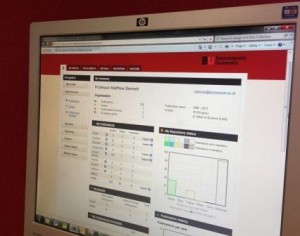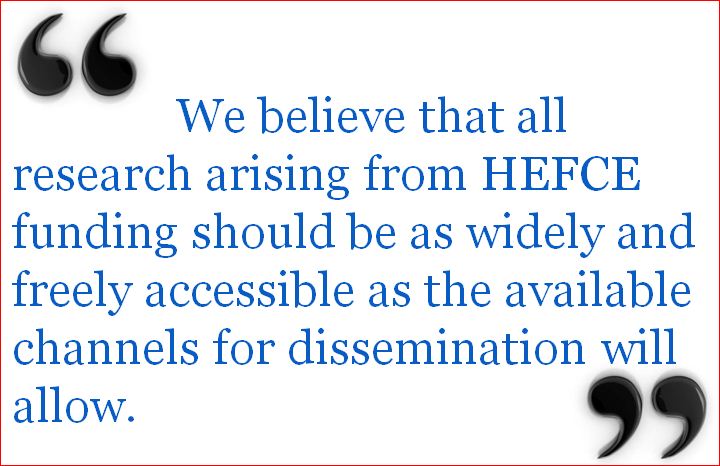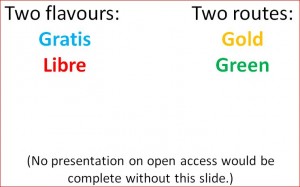Some of the key issues around open access are neatly summarised by PhD Comics in this short animation. It’s from a couple of years ago, but still relevant…
httpv://www.youtube.com/watch?v=L5rVH1KGBCY
Latest research and knowledge exchange news at Bournemouth University
Some of the key issues around open access are neatly summarised by PhD Comics in this short animation. It’s from a couple of years ago, but still relevant…
httpv://www.youtube.com/watch?v=L5rVH1KGBCY
I have taught at Université Paris Ouest Nanterre La Défense on a number of occasions but I continue to be impressed by the enthusiasm and challenging questions the Master’s level students pose. Paris is rich with culture and the education system has many benefits. I am privileged to be part of a growing French research culture that respects skills and knowledge with cutting edge technology in neuroscience.

Eiffel Tower, roof-top.
This complements my experience at Bournemouth University and has enabled me to collaborate on projects that face difficult challenges with respect to ethics and use of expensive technology, namely fMRI scanning. Functional Magnetic Resonance Scanning is notoriously expensive yet the benefits to clinical research are potentially huge.
My study on yawning and cortisol at Bournemouth University [1] has now includes collaboration with three prestigious centres in France: Université Paris Ouest Nanterre La Défense, Amiens University Hospital, University of Picardy Jules Verne.
I hope to continue my Anglo-French meetings with the assistance of the Erasmus Travel Scholarship scheme in the future, as well as with funding from the French Embassy and the French Multiple Sclerosis Society.
[1] Thompson, S.B.N., 2014. Yawning, fatigue and cortisol: expanding the Thompson Cortisol Hypothesis. Medical Hypotheses. Doi: 10.1016/j.mehy.2014.08.009.
My Publishing Experience: Prof. Matthew Bennett
Wed 23rd July 12:30-14:00 Russell Cotes Museum, Bournemouth
 On Wednesday 23rd July, Prof. Matthew Bennett will be hosting a Writing Academy lunchbyte session at the Russell Cotes Museum.
On Wednesday 23rd July, Prof. Matthew Bennett will be hosting a Writing Academy lunchbyte session at the Russell Cotes Museum.
In this session, Matthew will talk about his personal publishing experience, his approaches to research and writing, how to develop a publication strategy and the challenges of working with colleagues and dealing with both reviewers and editors. He will talk about all type of publishing from journal articles, to books via edited compilations. Drawing on personal experience he will also focus on how you target high impact journals. After the presentation, attendees are invited to stay and discuss the topic with the speaker over lunch.
To book a place on either of these workshops, please email staffdevelopment@bournemouth.ac.uk
If you have any questions relating to these sessions then please contact Shelly Anne Stringer

Co-Authorship and How to Write with Authors:
Wed 2nd July 12:30-14:00 The Octagon, Sir Michael Cobham Library, Talbot Campus
Presented by Prof. Mark Hadfield this Writing Academy lunchbyte session will look at co-authorship in general, techniques for writing with authors, how to manage these relationships and dealing with difficult ao-authors.
After the presentation, attendees are invited to stay and discuss the topic with the speaker over lunch.
Writing English as a Foreign Language:
Wed 16th July 12:30-14:00 P406, Poole House, Talbot Campus
Presented by Paul Barnes from the library this Writing Academy lunchbyte session will look at:
After the presentation, attendees are invited to stay and discuss the topic with the speaker over lunch, there is also an option for attendees to book one to one appointments with the speaker to discuss any individual needs they may have.
My Publishing Experience: Prof. Matthew Bennett
Wed 23rd July 12:30-14:00 Russell Cotes Museum, Bournemouth
In this Writing Academy Lunchbyte session Prof. Matthew Bennett will talk about his personal publishing experience, his approaches to research and writing, how to develop a publication strategy and the challenges of working with colleagues and dealing with both reviewers and editors. He will talk about all type of publishing from journal articles, to books via edited compilations. Drawing on personal experience he will also focus on how you target high impact journals. After the presentation, attendees are invited to stay and discuss the topic with the speaker over lunch.
If you have any questions relating to these sessions then please contact Shelly Anne Stringer
To book a place on either of these workshops, please email staffdevelopment@bournemouth.ac.uk
 RKEO will be delivering some ‘Brush up yer BRIAN’ training on 19th June 2014 1pm for Media School staff and students. The session will cover:
RKEO will be delivering some ‘Brush up yer BRIAN’ training on 19th June 2014 1pm for Media School staff and students. The session will cover:
To book on please register here.
A few weeks back we were privileged to welcome experts on the topic of Open Access to speak at BU in an event well attended by delegates from HEIs across England, Scotland and Wales. The event was enjoyed by all who attended and over a series of blog posts I hope to summarise some of the key points raised by each of the speakers. We also filmed the event so hope to be posting this soon for all to watch, enjoy and comment upon.
A few days a go, I summarised Alma Swans Introductory Address on ‘The benefits of Open Access’. Today, I look at Ben Johnson’s presentation ‘Open Access in a Post-2014 REF’.
 Ben Johnson is a policy adviser at the Higher Education Funding Council for England (HEFCE), where he has worked for the past five years. He has a first class honours degree in music from the University of Southampton, and ten years’ experience working in strategic planning, process improvement and risk management. Since joining HEFCE, Ben has focussed on developing the Council’s thinking in novel, emerging and cross-cutting policy areas. Recently, these have included examining how technological advancements can drive openness in education and research. In 2013, Ben joined the research policy team to lead HEFCE’s work on open access, research information and infrastructure.
Ben Johnson is a policy adviser at the Higher Education Funding Council for England (HEFCE), where he has worked for the past five years. He has a first class honours degree in music from the University of Southampton, and ten years’ experience working in strategic planning, process improvement and risk management. Since joining HEFCE, Ben has focussed on developing the Council’s thinking in novel, emerging and cross-cutting policy areas. Recently, these have included examining how technological advancements can drive openness in education and research. In 2013, Ben joined the research policy team to lead HEFCE’s work on open access, research information and infrastructure.
In April, HEFCE and the other three UK funding bodies published details of a new policy for open access relating to future research assessments after the current 2014 REF. To read this item in full visit: http://www.hefce.ac.uk/news/newsarchive/2014/news86805.html. In his presentation, Ben talked through this policy and answered questions from delegates throughout the day.
He opened his presentation by outlining Open Access its flavours and routes. GOLD being the journal making the work immediately and freely accessible online under a CC-BY licence and GREEN by the author depositing their work into an intuitional or subject repositories at point of acceptance – further information can be found in earlier blog posts (How to deposit to BURO, Green & Gold). 
HEFCEs core principle behind the policy is that outputs submitted to a post-2014
REF should be Open Access and they have three objectives in implementing the policy:
The minimum requirements of the policy are that:
This will apply to all journal articles and most conference proceedings (those with an ISSN), he also stipulated that the maximum embargoes to be allowed will be:
An analysis of the REF 2014 submissions found that 96% of outputs could have been Open Access based on this criteria and the remaining 4% would be covered in the exceptions of the policy.
In addition to this, extra credit will be given in the research environment component of the post-2014 REF where an HEI can demonstrate that:
The prediction is that this will lead to:
Full slides from Ben Johnson’s presentation at Bournemouth University’s Open Access Event on the 7th May 2014 are available here internally.
If you would like to deposit your full text articles into BURO you can do this easily via BRIAN, full guidance can be found on the staff intranet pages.
 Last Wednesday, BU hosted a sector-wide Open Access Event at the EBC. The day was a great success with attendees travelling from universities across the UK to hear keynote speaker Alma Swan and speakers from HEFCE, LSE Impact Blog, PLOS, University of Oxford and BU talk about Open Access, one of the key priorities for the sector at the moment.
Last Wednesday, BU hosted a sector-wide Open Access Event at the EBC. The day was a great success with attendees travelling from universities across the UK to hear keynote speaker Alma Swan and speakers from HEFCE, LSE Impact Blog, PLOS, University of Oxford and BU talk about Open Access, one of the key priorities for the sector at the moment.
Feedback from the event has been overwhelming positive with attendees finding the day extremely useful with lots of interesting discussion throughout the day. Over the next few weeks, we’ll be posting blogs summarising the key points from each of the presentations so keep your eyes peeled…
 We recently received a Freedom of Information (FOI) request from a reporter at Research Fortnight asking (in summary) how many of our Research Council (RCUK) outputs were made Open Access in the last year. The request highlighted that there is a lot of confusion about what is required from academics with RCUK grants in terms of Open Access. So, almost a year on from when the policy was published and spurred on from the FOI request I thought it was worth recapping on what the policy is and how we should be adhering to it. The full policy is available on the RCUK website. However, the key elements are as follows:
We recently received a Freedom of Information (FOI) request from a reporter at Research Fortnight asking (in summary) how many of our Research Council (RCUK) outputs were made Open Access in the last year. The request highlighted that there is a lot of confusion about what is required from academics with RCUK grants in terms of Open Access. So, almost a year on from when the policy was published and spurred on from the FOI request I thought it was worth recapping on what the policy is and how we should be adhering to it. The full policy is available on the RCUK website. However, the key elements are as follows:
When
In April 2013, Research Councils UK (RCUK) launched their revised policy on Open Access with more gusto and clearer targets then ever before.
Aim
Current and future research fundamentally relies on access to the findings and ideas that come out of publicly-funded research. Research Councils UK (RCUK) fully support the concept of universal access so that everyone can benefit from this knowledge. Their policy on Open Access aims to achieve immediate, unrestricted, on-line access to peer-reviewed and published research papers, free of any access charge and their vision is for all users to be able to read published research papers in an electronic format and to search for and re-use (including download) the content of published research papers, both manually and using automated tools (such as those for text and data mining), provided that any such re-use is subject to full and proper attribution.
Scope
The policy applies to peer-reviewed research articles (including review articles not commissioned by publishers), which acknowledge Research Council funding, that are submitted for publication from 1st April 2013, and which are published in journals or conference proceedings.
The policy does not (currently) cover monographs, books, critical editions, volumes and catalogues, or forms of non-peer-reviewed material. However, RCUK encourages authors of such material to consider making them Open Access where possible.
Such works should be published in academic journals that comply with the policy. A Journal may comply with the policy through two routes:
It must make the work immediately and freely accessible online under a CC-BY licence. An ‘Article Processing Charge’ (APC) may be payable. BU has a central fund to cover these costs – the Open Access Publication Fund.
The journal must allow deposit of the full and final text of the work (as accepted for publication including all changes arising from peer review) in a freely accessible online repository and without restriction on non-commercial re-use. An APC will not be payable. BU encourages researchers to deposit all articles upon acceptance in our instititional repository BURO via BRIAN.
The choice of route to Open Access remains with the researchers and BU, both ‘gold’ and ‘green’ routes to Open Access are acceptable. However, the policy preference is for immediate Open Access with the maximum opportunity for reuse (i.e. ‘gold’).
Works covered by the policy must acknowledge the funding source(s) using the standard format . They must also, if applicable, include a statement on how the underlying research materials – such as data, samples or models – can be accessed.
Implementation & Compliance
RCUK recognises that the journey to full Open Access is a process and not a single event and therefore expect compliance to grow over a transition period anticipated to be five years. The expectation is that:
 HEFCE and the other three UK funding bodies have published details of a new policy for open access relating to future research assessments after the current 2014 REF.
HEFCE and the other three UK funding bodies have published details of a new policy for open access relating to future research assessments after the current 2014 REF.
The policy describes new eligibility requirements for outputs submitted to the post-2014 REF (commonly referred to REF2020). These requirements apply to all journal articles and conference proceedings accepted for publication after 1 April 2016. They do not apply to monographs, other long-form publications, creative or non-text outputs, or data.
 The requirements state that peer-reviewed manuscripts must be deposited in an institutional (BURO) or subject repository on acceptance for publication. The title and author of these deposits, and other descriptive information, must be discoverable straight away by anyone with a search engine. The manuscripts must then be accessible for anyone to read and download once any embargo period has elapsed.
The requirements state that peer-reviewed manuscripts must be deposited in an institutional (BURO) or subject repository on acceptance for publication. The title and author of these deposits, and other descriptive information, must be discoverable straight away by anyone with a search engine. The manuscripts must then be accessible for anyone to read and download once any embargo period has elapsed.
There are limited exceptions to the policy, where depositing and arranging access to the manuscript is not achievable.
This policy was developed following an extensive two-stage consultation during 2013, to which they received over 460 written responses.
To read this item in full visit: http://www.hefce.ac.uk/news/newsarchive/2014/news86805.html
If you would like to know more about Open Access, Bournemouth University are hosting asector-wide Open Access Event on the 7th May with Ben Johnson from HEFCE presenting on the policy, places are limited so if you’re interested, please register here.
In the meantime, if you would like to deposit your full text articles into BURO you can do this easily via BRIAN, full guidance can be found on the staff intranet pages. Alternatively, there are two BRIAN training sessions scheduled which you can book on to here.
 Research Councils and funding bodies are increasingly requiring evidence of adequate and appropriate provisions for data management and curation in new grant funding applications. In July, the Digital Curation Centre (DCC) will be holding two half day workshops which will provide an introduction to research data management and curation, the range of activities and roles that should be considered when planning and implementing new projects, and an overview of tools that can assist with curation activities.
Research Councils and funding bodies are increasingly requiring evidence of adequate and appropriate provisions for data management and curation in new grant funding applications. In July, the Digital Curation Centre (DCC) will be holding two half day workshops which will provide an introduction to research data management and curation, the range of activities and roles that should be considered when planning and implementing new projects, and an overview of tools that can assist with curation activities.
The Learning Objectives of the workshops will be to:
There will be two workshops each pitched to a slightly different audience on the dates below:
Further information can be found on the Staff Intranet. If you are interested in attending, please book on by emailing staffdevelopment@bournemouth.ac.uk
 Back in April 2011 we launched the BU Open Access Publication Fund. This is a dedicated central budget that has been launched in response to, and in support of, developments in research communication and publication trends. The fund is also to support research in complying with some of the major funding bodies who have introduced open access publishing requirements as a condition of their grants.
Back in April 2011 we launched the BU Open Access Publication Fund. This is a dedicated central budget that has been launched in response to, and in support of, developments in research communication and publication trends. The fund is also to support research in complying with some of the major funding bodies who have introduced open access publishing requirements as a condition of their grants.
The fund is available for use by any BU author ready to submit a completed article for publication who wishes to make their output freely and openly accessible.
If you are interested in applying to the fund then you need to email the BU Open Access mailbox with the following information:
If you have any questions about the Fund then please direct them to Shelly via email.
Further information: BU Open Access Fund policy

 Following the internal launch at BU on the 14th February 2014, BU Researchers at the Centre for Intellectual Property Policy and Management (CIPPM) launched the Copyrightuser.org at The Arts and Humanities Research Council (AHRC) Creative Economy Showcase.
Following the internal launch at BU on the 14th February 2014, BU Researchers at the Centre for Intellectual Property Policy and Management (CIPPM) launched the Copyrightuser.org at The Arts and Humanities Research Council (AHRC) Creative Economy Showcase.
The event was held at Kings Place, London, on Wednesday 12th March 2014. The Showcase demonstrated the outputs and innovations of AHRC investments in the Creative Economy through presentations, workshops and exhibitions. The sectors exhibited on the day, included fashion, design, video games, architecture, broadcasting, archives, digital technologies and dance.
Amongst the various funded initiatives showcased on the day, Copyrightuser.org held a prominent exhibition stand and exhibited the website which was complemented by large posters, bookmarks and myth/reality cards (illustrated below) which explained the most common myths about copyright.
This high-profile event was attended by over 450 delegates and included policy-makers, business leaders in the creative industries, knowledge exchange practitioners, directors of research in universities, senior representatives from partner organisations in the Creative Economy, other strategic funding agencies in the sector, representatives from the AHRC’s investments in the Creative Economy and other stakeholders.
Keynote speakers included amongst others Sebastian Conran (Designer), the Hon David Willetts (Minister of State for Universities and Science), Ed Vaizey MP (Minister for Culture, Communications and Creative Industries) and Professor Rick Rylance (CEO, AHRC).
Highlights from the day can be streamed here.
Copyrightuser.org was funded by the BU Fusion Investment Fund in 2012 and was developed by the Business School’s Centre for Intellectual Property Policy and Management (CIPPM) in collaboration with Centre for Excellence in Media Practice (CEMP). Following the success of the Fusion Funded project, the CIPPM-led team went on to secure RCUK funding provided by CREATe in August 2013 to extend the scope of the project. Phase II of the copyrightuser.org is now underway.
The launched online resource aims to make UK copyright law accessible to creators and members of the public. This 1-minute video captures the concept behind the Copyrightuser.org project.
Using quantitative and qualitative methods the site aims to provide answers to the most pressing concerns that creators and the public have about copyright law. To achieve these aims, interviews with creators where conducted and a video for each creative sector was produced demonstrating their thoughts and questions about copyright, see the musicians video here for example. Secondly, 200 frequently asked questions posted by users online were sourced, analysed and coded down to the 20 most common.
The Copyrightuser.org has so far been received very well as evidenced by the positive feedback from various organisations, individuals, legal professionals and the creative industries.
During the launch, the website received 232 visits; and has now received over 1,558 visits to date.
Please also visit our twitter page – @copyrightuser to keep up with the Copyrightuser.org developments.
The copyrightuser.org team consists of:
Dr. Dinusha Mendis (Principal Investigator & Co-Director CIPPM)
Mr. Bartolomeo Meletti (Lead Multimedia Producer and CIPPM Research Assistant)
Ms. Hayleigh Bosher (PhD Candidate (Copyright) and CIPPM Research Assistant)
Professor Martin Kretschmer (Principal Investigator & Director CREATe)
Dr. Kris Erickson (Co-Investigator, CREATe).
The team is further assisted by a Production Team consisting of Marco Bagni (Art Direction, Design and Animation), Sar:co (Music and SoundFX), Davide Bonazzi (Illustrations) amongst others and an Editorial Board consisting of Professor Maurizio Borghi (Director, CIPPM); Professor Ruth Towse (Co-Director, CIPPM); and Professor Ronan Deazley (Professor of Copyright Law, University of Glasgow) amongst others.


Family Rituals 2.0 is a multidisciplinary project funded by the Engineering and Physical Sciences Research Council and seeks to understand how work-related travel affects participation in family and home life. It is particularly interested in how ‘mobile workers’ keep in touch with family while work takes them apart, and the role technologies play in sustaining such communications.
The research team at Bournemouth (Prof Adele Ladkin, Dr Marina Marouda) has successfully completed the first stage of this research that involved talking to a range of employers to obtain organisational views on mobility and work-life balance. Our organisations came from diverse sectors, including tourism and hospitality, transport, logistics/haulage, media and NGOs.
For the second stage of the study we are looking to acquire the views of people who travel for work. For these purposes, we are conducting interviews with mobile workers to learn about their experiences of working away and how they use communication technologies to keep in contact with family during periods of absence.
Interested to take part?
We are seeking to interview people in all types of jobs that involve travel, whatever their occupation – from engineers to lorry drivers, aircrew to corporate CEO’s. We offer research participants up to £50 in Love2Shop vouchers as a thank you for their time and help.
For more information please visit our website http://familyrituals2-0.org.uk/
If you wish to take part please contact Dr Marina Marouda at mmarouda@bournemouth.ac.uk
On Friday 14 February 2014, the Centre for Intellectual Property Policy and Management (CIPPM) launched the Copyrightuser.org
Copyrightuser.org is an independent online resource aimed at making UK copyright law accessible to creators and members of the public.
The project was funded by BU’s Fusion Investment Fund (FIF) in 2012 and was developed in collaboration with CIPPM and the Centre for Excellence in Media Practice (CEMP)
The online resource is applicable to anyone who uses copyright – whether it be in education, music, film, gaming, artistic work etc.
The objective of the portal is to inform creators on how to protect their work; how to license and exploit it; and how to legally re-use the works of others.
As such, it is a useful tool for creators and also for the general public in understanding the issues surrounding copyright law.
The 1-minute video on the landing page of copyrightuser.org further demonstrates what this online resource is about.
Following on from the success of the research carried out as a result of the support received from the FIF, the CIPPM-led team went on to secure RCUK funding provided by CREATe, University of Glasgow in August 2013 to extend the scope of the project.
FIF, the CIPPM-led team went on to secure RCUK funding provided by CREATe, University of Glasgow in August 2013 to extend the scope of the project.
The work on Phase II of copyrightuser.org is now underway.
The copyrightuser.org team consists of:
The team is further assisted by an Editorial Board consisting of Professor Maurizio Borghi (Director, CIPPM); Professor Ruth Towse (Co-Director, CIPPM); and Professor Ronan Deazley (Professor of Copyright Law, University of Glasgow).
We invite you to visit copyrightuser.org and welcome your feedback.
I’d like to invite you to the forthcoming seminars organised by the Women’s Academic Network.
Dr Cynthia Carter
Venue: K101
Date and time: Friday, 28 Feb, 14:00-16:00
Biography (http://www.cardiff.ac.uk/jomec/contactsandpeople/profiles/carter-cynthia.html):
Dr Cynthia Carter is a Senior Lecturer in the Cardiff School of Journalism, Media and Cultural Studies, Cardiff University.
Her books include Current Perspectives in Feminist Media Studies (Routledge, 2013); Critical Readings: Violence and the Media (Open University Press, 2006); Critical Readings: Media and Gender (Open University Press, 2004), Violence and the Media (Open University Press, 2003), Environmental Risks and the Media Routledge, 2000) and News, Gender and Power (Routledge, 1998). She is currently co-editing a companion on media and gender.
She is Founding Co-Editor of the journal Feminist Media Studies (Routledge) and is editorial board member of Communication, Culture & Critique (Wiley-Blackwell), Communication Review (Taylor & Francis), Communication Theory (Wiley-Blackwell), Critical Studies in Media Communication (Taylor & Francis), Fifth Estate (online), Journal of Children and Media (Routledge), Online Journal of Communication and Media Technologies, Sociology Compass (Blackwell), and Studies on Women and Gender Abstracts (Routledge).
Cindy will discuss her work with the Global Media Monitoring Project (http://www.whomakesthenews.org), the largest longitudinal study on gender in the world’s media. She has been involved in the study since 2000.
Professor Catherine Cassell
Title of presentation: The state of qualitative management research and future challenges for qualitative researchers
Venue: EB206
Date and time: Thursday, 03 April, 2014, 14:00-16:00
Biography:
Catherine Cassell is Professor of Organisational Psychology. Previously she was Head of the School’s People, Management and Organisations Division and head of Postgraduate Research programmes. Before joining MBS she held appointments in the Management School at the University of Sheffield and at Sheffield Business School. She was the founding chair of British Academy of Management’s Special Interest group in Research Methodology – a group she is still heavily involved with – and is currently a member of the Association of Business School’s Research Policy Committee. Professor Cassell is an Associate Editor of the ‘British Journal of Management’, inaugural co-Editor of ‘Qualitative Research in Organisations and Management: an international journal’, and on the Editorial Advisory Boards of five other journals. She is a Fellow of the British Academy of Management and an Academic Fellow of the Chartered Institute of Personnel and Development.
Catherine’s research interests are in the area of organisational change and learning; and diversity and dignity in the workplace. She has a specific interest in the use of qualitative research techniques in both management and organisational research. Together with Gillian Symon from Birkbeck she has published a number of books and articles in this area, plus chaired and convened symposia at international conferences. She has also jointly edited special issues of a number of different journals all focused on the use of qualitative methods and alternative epistemological approaches in management and organizational research. Furthermore she has completed a two year ESRC funded project entitled ‘Benchmarking good practice in qualitative management research’ (with G. Symon and P. Johnson) where the team developed training materials aimed at enhancing good practice in the field. She has also received research grants from a number of organisations including ESRC, EPSRC, British Academy, ERDF and the EU and has supervised 15 doctoral students to completion.
For catering purpose, please book your place with Staff Development staffdevelopment@bournemouth.ac.uk
Christine Bosse
Venue: EB306
Date and time: Friday, 11 April, 2014, 15:00-17:00
She is widely known in the public for her direct and no-nonsense communication and is enthusiastically engaged in the societal debate for a better and safer world. She is a role model for many aspiring young people as the highest ranking female CEO in Denmark and was appointed the 22nd most influential business woman in the world in 2009 and 2010 by the Financial Times.
Stine Bosse serves as chairman of Flügger Denmark, The Royal Danish Theater, CONCITO, Børnefonden, and Copenhagen Art Festival. She serves as vice chairman of ChildFund Alliance and sits on the board of among others TDC, Allianz and Aker ASA. Additionally, Stine Bosse is the former chairman of the supervisory board of the Danish Insurance Association (Forsikring & Pension), and former board member of Grundfos, Nordea Bank A/S and Amlin plc. In the Spring 2010, Stine Bosse was appointed Advocate for the Millenium Development Goals by the UN Secretary General, Ban Ki-moon, to fight world hunger and poverty. Stine is also the founder of Women in Europe Network.
 Research Councils and funding bodies are increasingly requiring evidence of adequate and appropriate provisions for data management and curation in new grant funding applications. In July, the Digital Curation Centre (DCC) will be holding two half day workshops which will provide an introduction to research data management and curation, the range of activities and roles that should be considered when planning and implementing new projects, and an overview of tools that can assist with curation activities.
Research Councils and funding bodies are increasingly requiring evidence of adequate and appropriate provisions for data management and curation in new grant funding applications. In July, the Digital Curation Centre (DCC) will be holding two half day workshops which will provide an introduction to research data management and curation, the range of activities and roles that should be considered when planning and implementing new projects, and an overview of tools that can assist with curation activities.
The Learning Objectives of the workshops will be to:
There will be two workshops each pitched to a slightly different audience on the dates below:
Further information can be found on the Staff Intranet. If you are interested in attending, please book on by emailing staffdevelopment@bournemouth.ac.uk
T he research-based short film, RUFUS STONE, continues to gain traction and make an impact. RUFUS STONE was the key output of a three-year Research Councils UK funded New Dynamics of Ageing Project at Bournemouth University. Since it’s gala premier in 2012, the film has been screened widely for academics, NGO workers, healthcare providers and community audiences of all ages and backgrounds.
he research-based short film, RUFUS STONE, continues to gain traction and make an impact. RUFUS STONE was the key output of a three-year Research Councils UK funded New Dynamics of Ageing Project at Bournemouth University. Since it’s gala premier in 2012, the film has been screened widely for academics, NGO workers, healthcare providers and community audiences of all ages and backgrounds.
RUFUS STONE is a film about love, sexual awakening and treachery, set in the bucolic countryside of south west England, and viewed through the lens of growing older. It is based on knowledge gathered as part of the research project “Gay and Pleasant Land? – a study about positioning, ageing and gay life in rural South West England and Wales.”
13 March: University of Alberta the Arts-based Research Studio and Joe Norris present a screening of RUFUS STONE followed by a Q & A with Project lead, Author and Executive Producer, Kip Jones via Skype. 12 noon to 2 p.m. Canadian time.
22 March: Keele University’s “Dynamic Qualitative Research” two-day conference will show the film. Mid-day. Kip will be present to take questions and comments.
24 April: RUFUS STONE will be featured as a Special Event in the Frontiers Stream at the British Sociological Association’s Annual Conference at Leeds University. A lunchtime screening, Kip will take questions following the screening. 12:30-13:30
Roger Stevens Lecture Theatre 20.
ALSO: Working out details to screen RUFUS STONE at University of Melbourne’s “Artistry, performance and scholarly inquiry” Conference in July. Stay tuned!
The Centre for Intellectual Property Policy and Management (CIPPM), Business School, will hold a lunch-time event on Friday 14th February 2014, to launch the Copyright User portal. The event will take place from 12-1 pm in EB302. A light lunch will follow from 1 – 1.30 pm providing a further opportunity to chat to the project team.
The Copyright User portal is an independent online resource aimed at making UK copyright law accessible to creators and members of the public.
online resource aimed at making UK copyright law accessible to creators and members of the public.
The project was funded by BU’s Fusion Investment Fund in 2012 and was developed in collaboration with CIPPM and the Centre for Excellence in Media Practice (CEMP)
In August 2013, the CIPPM-led team secured RCUK funding provided by CREATe, University of Glasgow to extend the scope of the project.
The online resource is applicable to anyone who uses copyright – whether it be in education, music, film, gaming, artistic work etc. The objective of the portal is to inform creators on how to protect their work; how to license and exploit it; and how to legally re-use the works of others.
It is a useful tool for creators and the UK creative industries and as such the content is relevant to the various creative stakeholders in the UK.
The session will be useful for anyone involved in the use of copyright works. The session will include presenting the online resource to the attendees and through an interactive session gather feedback on user experience.
To book your place at this event, please visit this page.
The Copyright User team consists of:
Dr. Dinusha Mendis (Principal Investigator & Co-Director CIPPM);
Mr. Bartolomeo Meletti (Lead Multimedia Producer and CIPPM Research Assistant);
Ms. Hayleigh Bosher (PhD Candidate (Copyright) and CIPPM Research Assistant);
Professor Martin Kretschmer (Principal Investigator & Director CREATe, University of Glasgow); and
Dr. Kris Erickson (Co-Investigator, CREATe, University of Glasgow).
The team is further assisted by an Editorial Board consisting of Professor Maurizio Borghi (Director, CIPPM); Professor Ruth Towse (Co-Director, CIPPM); and Professor Ronan Deazley (Professor of Copyright Law, University of Glasgow).